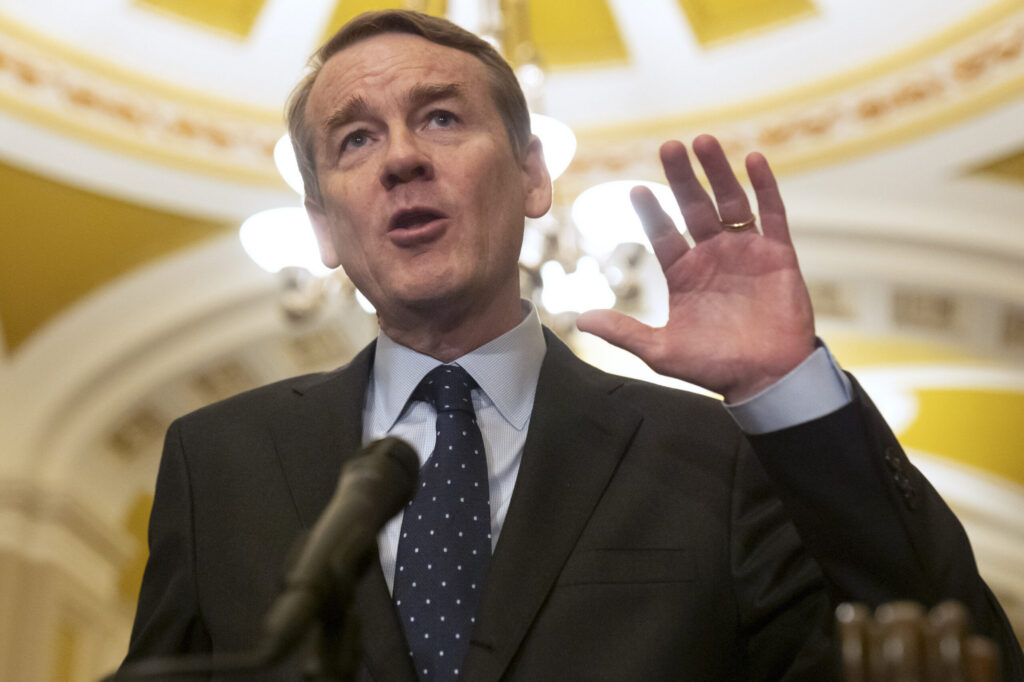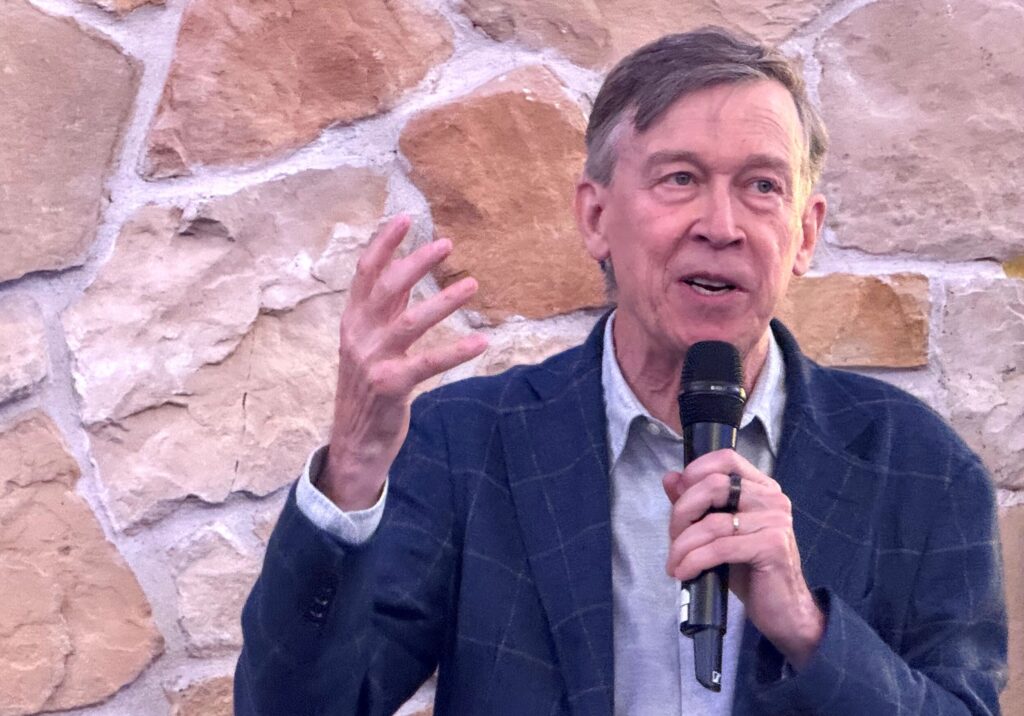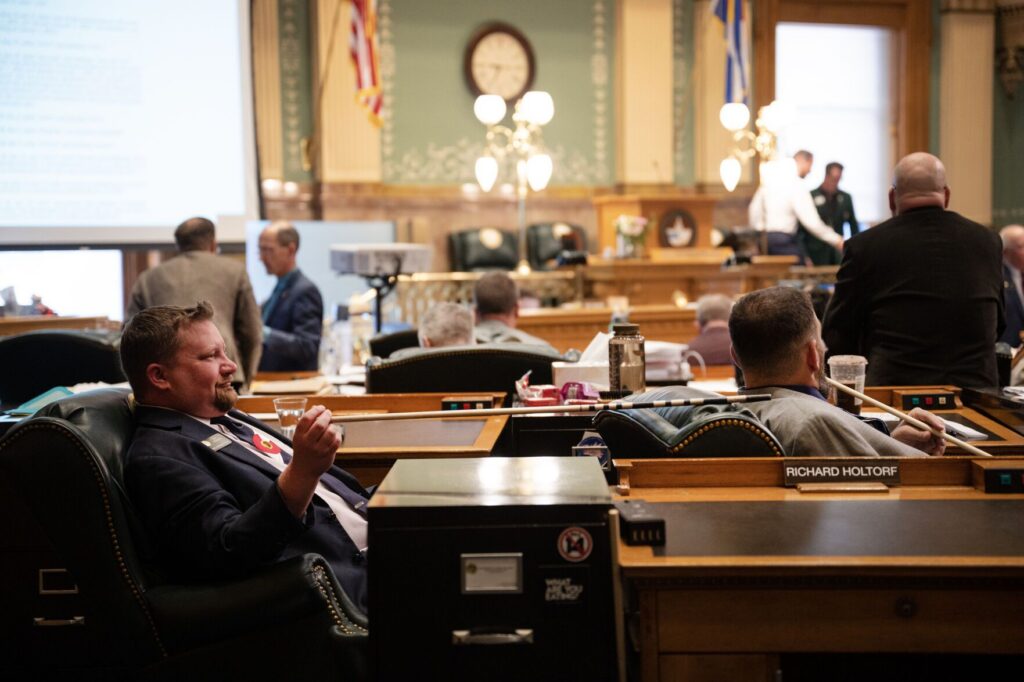Colorado Democrats advance proposal seeking to curb costs of utility bills

Months after the Colorado legislature began investigating the state’s skyrocketing energy bills, Democrats advanced a proposal they say will help address the issue.
Senate Bill 291 seeks to lower costs of utility bills and reduce future volatility by making several changes to the regulation of Colorado’s investor-owned electricity and natural gas providers, such as Xcel Energy, including adjusting the expenses that are paid by utility providers versus customers.
The Senate Finance Committee passed the bill in a 4-3 party-line vote on Thursday. The bill will next face the Senate Appropriations Committee for consideration.
“The intent of this bill is to provide more tools, more resources at the Public Utilities Commission to begin to do a better job of controling costs,” said bill sponsor Sen. Steve Fenberg, D-Boulder. “It is incumbent upon us to constantly be asking ourselves if the system is set up the right way, are there appropriate guardrails.”
In a January presentation, the state Public Utilities Commission reported that a typical Xcel Energy customer saw a 25% increase in their electricity bill and a 75% increase in their gas bill compared to the same time last year.
Officials attributed the rising prices largely on the cost of natural gas, which increased by 40%, and the use of natural gas, which rose by 30%. But they also cited two state actions that directly increased utility prices: rate hikes approved by Colorado energy regulators and the state allowing Xcel to charge customers $500 million for fuel costs incurred during a four-day winter freeze in 2021.
Under SB 291, utility providers would have to file a gas risk management plan, including a monthly cap on fuel charges. This is intended to stabilize bills by spreading out cost increases to a few cents per month over several years, instead of increasing bills by dozens of dollars in a single month, sponsors said.
Utility providers would also be prohibited from charging customers to pay for advertising, lobbying, political contributions and other activities.
By 2025, the bill would require the PUC to establish rules to ensure that utility providers have financial incentives to keep fuel costs down. It would also require the Colorado Energy Office to study the value and risks of natural gas investments and bar utility providers from incentivizing new natural gas hookups or penalizing terminating gas service.
Members of the utility industry stood firmly against SB 291 during Thursday’s committee hearing, including Robert Kenney, president of Xcel Energy’s Colorado Operating Company.
“It does little to protect our customers or your constituents,” Kenney said. “It directs activities that are either already happening or that will have little to no impact on customer affordability.”
Kenney said the bill wouldn’t bring down costs or reduce volatility, saying lawmakers should instead focus on increasing natural gas storage capacity for utility providers or promoting longer-term gas contracts to provide more cost certainty.
Other groups opposing the bill include Black Hills Energy, the Colorado Competitive Council, multiple contractors associations, and the governments or chambers of commerce of Denver, Aurora, Adams County and northwest Colorado.
The organizations backing the bill are CoPIRG, the Colorado Cross-Disability Coalition, Healthy Air and Water Colorado Action and Western Resource Advocates.
The bill sponsors said they are committed to working with the utility industry on amendments to address concerns, but they also defended their proposal, saying utility providers are concerned the measure will cut into their profits by limiting what costs they can push onto customers.
Bill sponsor Sen. Lisa Cutter, D-Jefferson County, said they “need to create a better balance” between the utility providers and the customers, pointing out that while Xcel customers experienced dramatic increases in their monthly bills last year, Xcel reported a record profit of $1.74 billion.
“Change is difficult and uncomfortable and they’re trying to protect their bottom line and the way that they conduct business … but our job is to protect the consumer,” Cutter said. “Our job isn’t to uphold the status quo when the people we serve are struggling to pay for something as basic as electricity.”
The Senate Appropriations Committee is expected to vote on SB 291 in the coming days.














